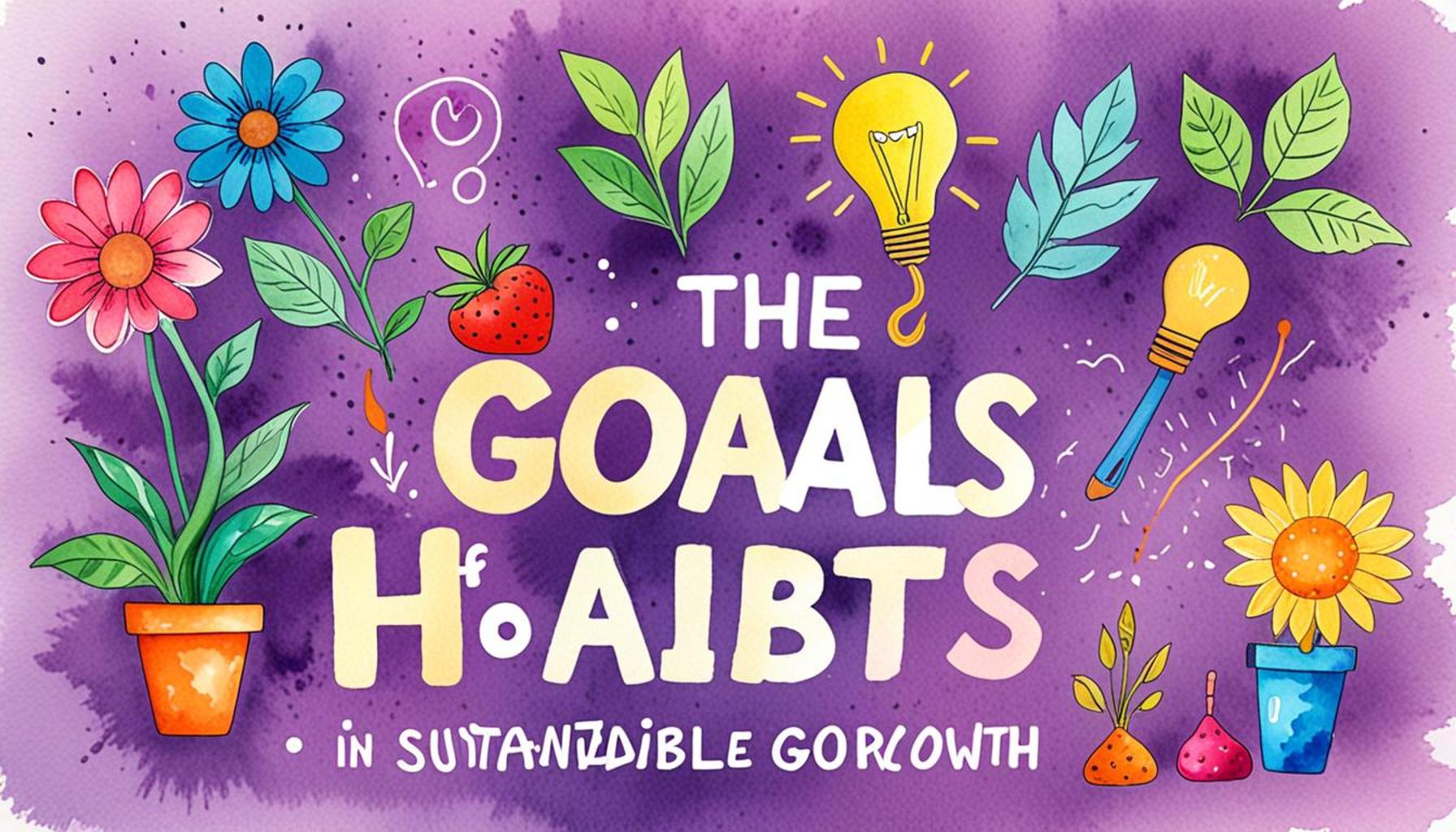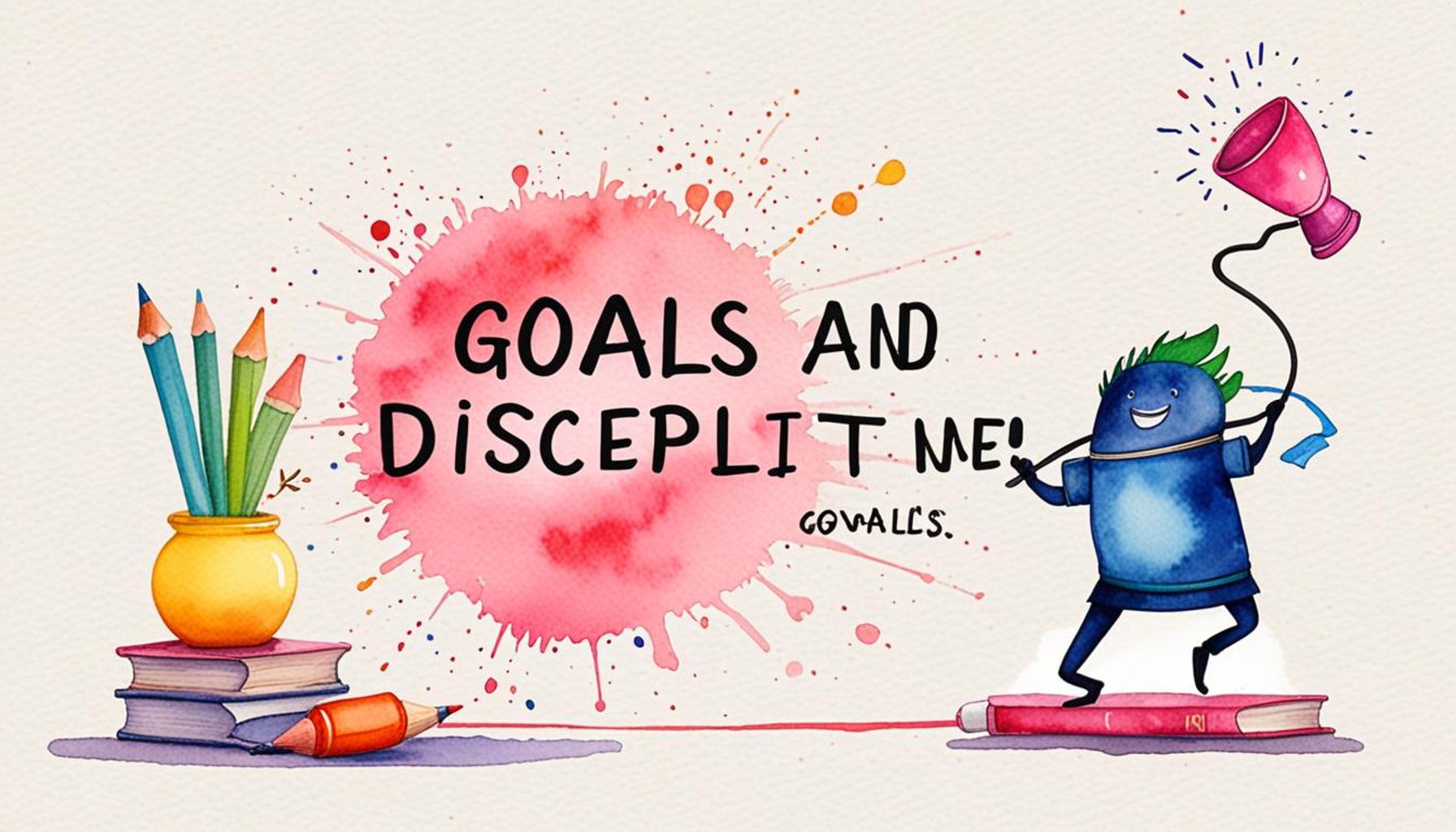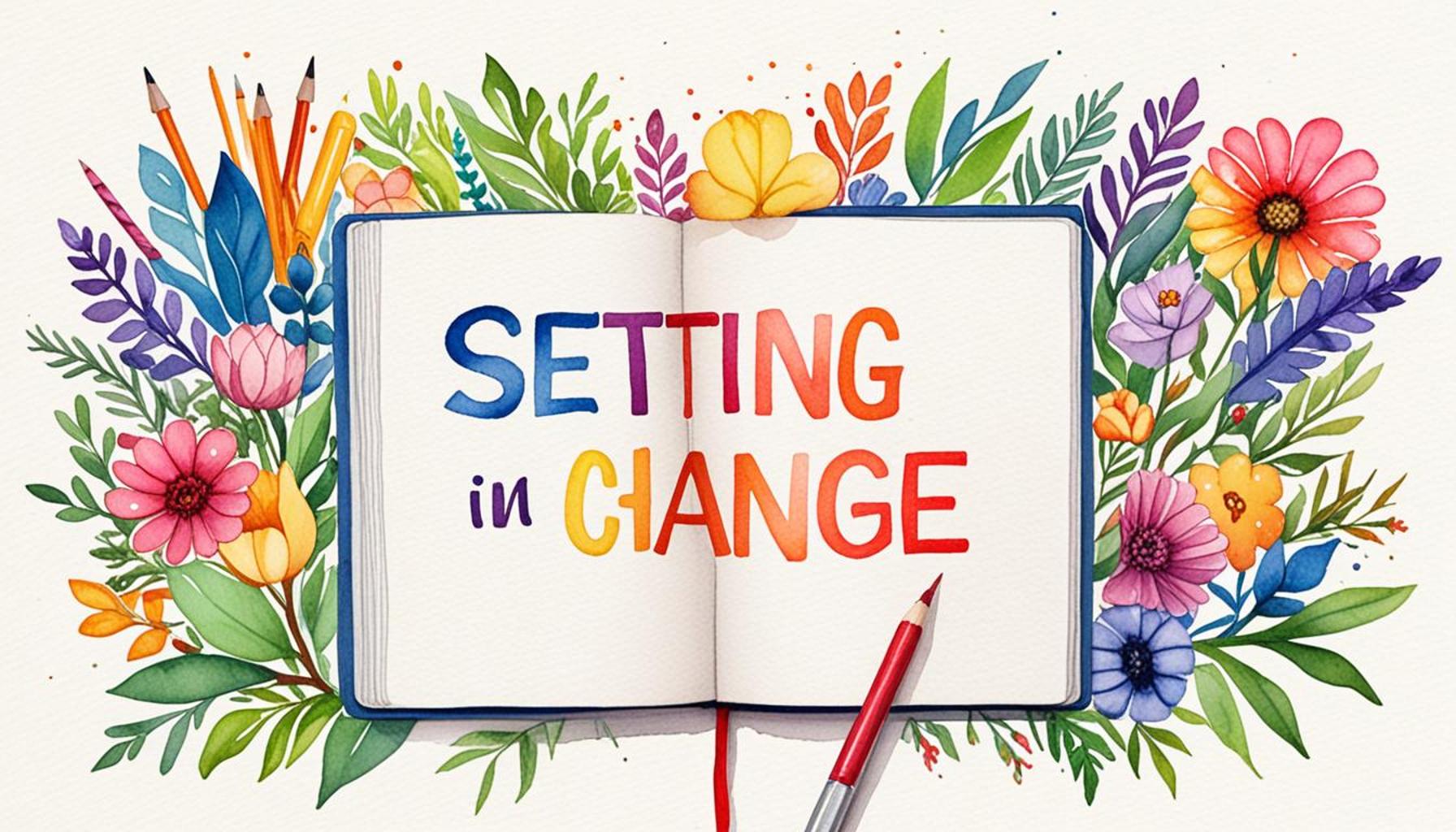Establishing Learning Goals: How Continuous Education Fosters a Growth Mindset
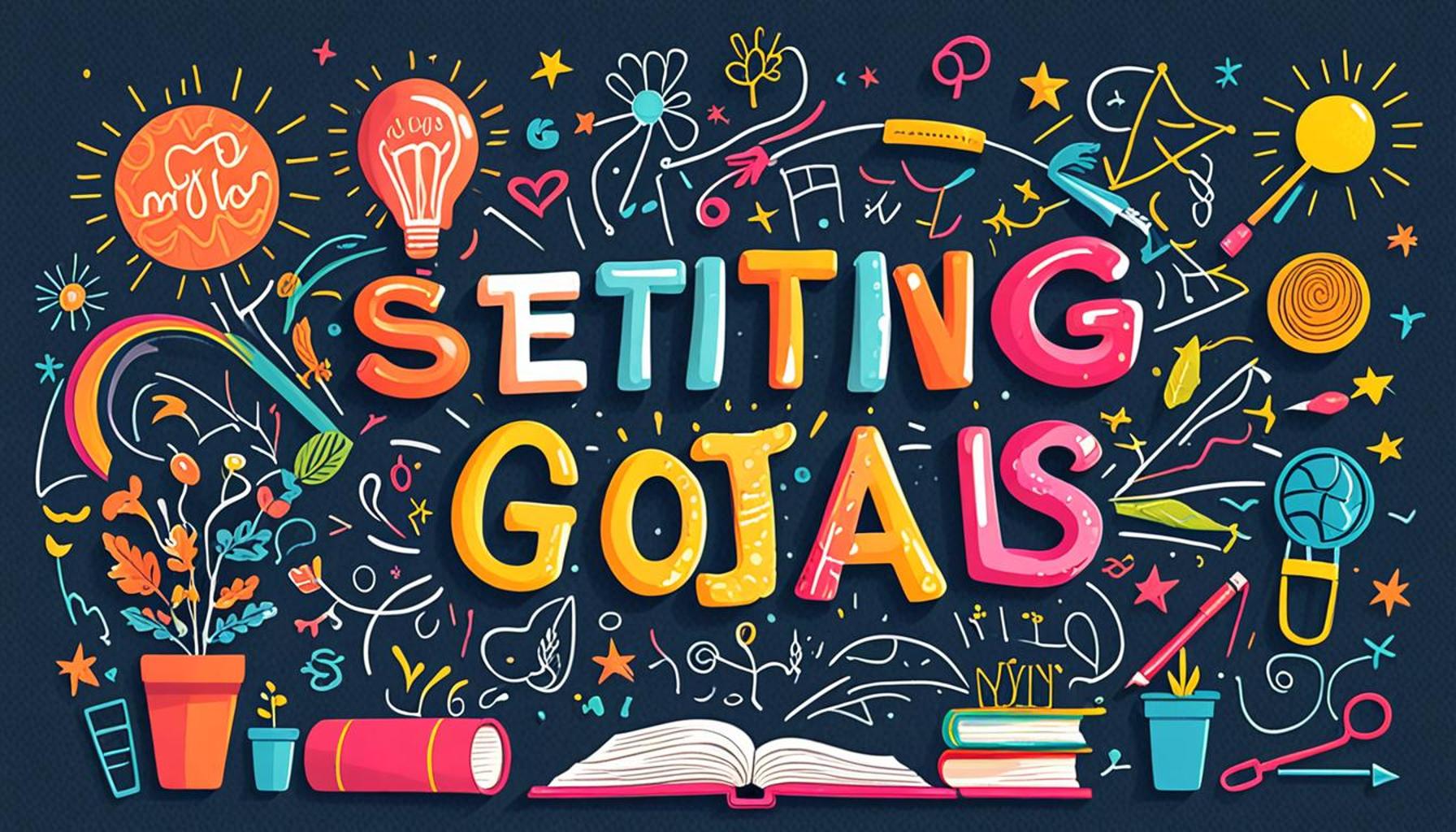
The Importance of Setting Learning Goals
In today’s rapidly evolving world, establishing learning goals is more vital than ever. The journey of education is not merely about acquiring knowledge but about fostering a growth mindset—a belief that abilities can be developed through dedication and hard work. This mindset is essential in navigating the complexities of the modern workplace, where new technologies and methodologies are constantly emerging.
Continuous education offers a myriad of significant benefits that can greatly impact individual careers. For instance:
- Adaptability: In a job market that demands new skills regularly, adaptability has become a crucial asset. Continuous learning helps individuals enhance their abilities, making them more attractive to employers. A software engineer in Lagos could take courses on cloud computing or data analytics to remain relevant, showcasing their commitment to adapting to trends in technology.
- Resilience: Embracing challenges through education not only builds knowledge but also cultivates resilience. For example, a young entrepreneur managing a startup in Nigeria may face numerous setbacks. Those who commit to refining their skills through online platforms such as Coursera or local workshops may find themselves better equipped to navigate these challenges successfully.
- Innovation: Fresh insights gained from continuous learning can foster innovation. For instance, a marketer might explore digital marketing trends to develop unique strategies that set their campaigns apart. In today’s competitive landscape, it is often the creative problem-solvers who gain an upper hand.
In Nigeria, where industries are transforming and opportunities are expanding rapidly, a commitment to continuous learning creates a pathway to success. With numerous platforms offering online courses, professional workshops, and community programs, individuals can set specific, actionable learning goals tailored to their career aspirations. For example, initiatives like the iHub in Nairobi, which also cater to Nigerian innovators, emphasize the importance of skill advancement through learning.
The role of continuous education in establishing these goals is profound; it shapes personal development and professional growth in myriad ways. Engaging in the dynamic process of learning leads to sustained motivation and an empowered approach toward achieving aspirations. The more one invests in education, the more equipped they become to seize new opportunities, innovate, and stay ahead in their respective fields.
As Nigeria continues to develop, the need for a skilled workforce will only become more pronounced. Individuals who embrace continuous learning will find themselves better positioned to contribute significantly to their sectors, driving both personal success and broader economic growth. Investing in one’s education is, therefore, not just a personal decision but a strategic move beneficial to the community and nation as a whole.
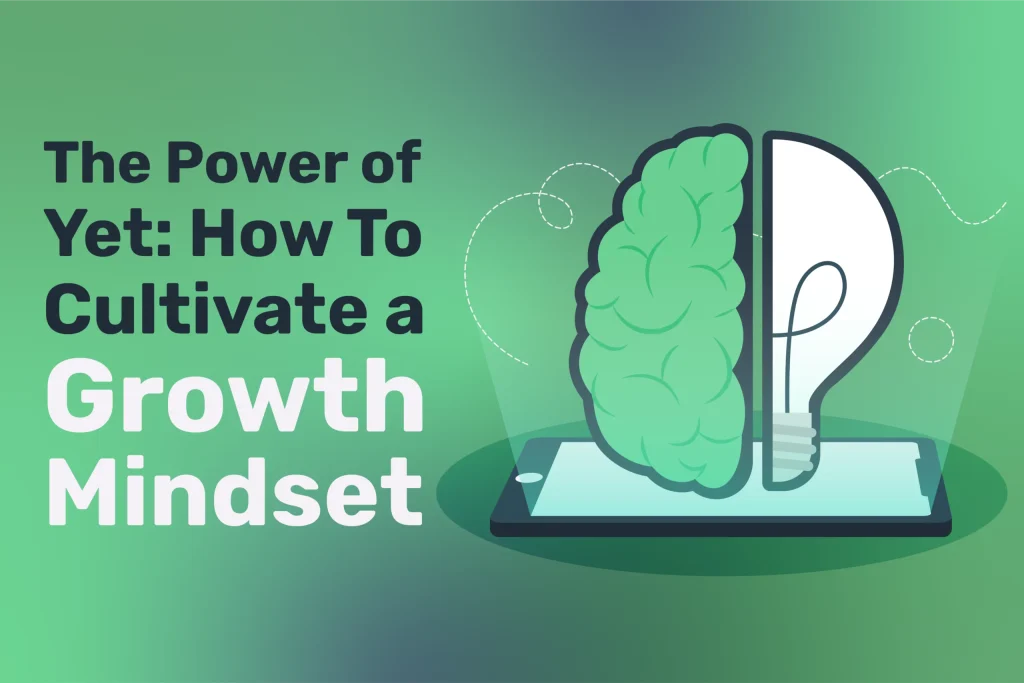
RECOMMENDED: Check out this similar article
Transforming Aspirations into Achievements
Setting learning goals serves as a pivotal first step for individuals eager to embrace a mindset of growth and excellence. These goals act as signposts, guiding learners through the fog of uncertainty in their professional journeys. In Nigeria, where the landscape of education is continually evolving, establishing clear targets not only aids personal development but also aligns with the broader objective of enhancing the country’s workforce.
When individuals identify and articulate their learning objectives, they create a concrete plan for growth. This could range from enhancing specific technical skills to seeking managerial acumen. Consider the case of a recent graduate in Nigeria who aspires to work in digital marketing. By focusing on critical areas such as search engine optimization (SEO), content creation, and social media strategy, they set a roadmap that links their ambitions to actionable educational pursuits.
To effectively establish these goals, individuals can employ various strategies:
- SMART Goals: The SMART criteria—Specific, Measurable, Achievable, Relevant, and Time-bound—can help structure the learning process. For instance, instead of a vague goal like “I want to learn about finance,” a SMART goal would be “I will complete an online financial management course by the end of the month to enhance my budgeting skills.”
- Self-Assessment: Conducting personal assessments to identify strengths and weaknesses can unveil areas that need focus. By being aware of their capabilities, learners can pinpoint specific skills that require improvement, aiding in the creation of targeted learning goals.
- Peer Collaboration: Engaging with peers or mentors who can provide insights and feedback creates a supportive learning environment. Networking with professionals in similar fields can lead to collaborative learning experiences and goal-setting that reflect industry standards.
Furthermore, continuous education platforms in Nigeria, such as edX, Coursera, and local institutions like Andela, not only offer skill enhancement opportunities but also serve as arenas for cultivating a robust growth mindset. By actively participating in these educational initiatives, individuals are more likely to achieve their goals and stay refreshed with the ever-changing trends in their respective fields.
Ultimately, establishing learning goals is a transformative process that empowers individuals. This proactive approach not only enhances one’s own skills but can contribute significantly to the broader context of economic growth and innovation in Nigeria. As more people adopt a mindset that values continuous education, the cycle of learning and development fosters a culture where everyone can thrive—pushing the boundaries of personal and collective achievement.
| Key Aspects | Impact on Growth Mindset |
|---|---|
| Establishing clear objectives | Promotes goal-oriented behavior and helps learners track progress. |
| Feedback mechanisms | Encourages adaptive learning through constructive criticism, enhancing resilience. |
| Continuous skill assessment | Fosters a sense of achievement and motivates learners to pursue further education. |
Establishing learning goals is a transformative strategy when it comes to continuous education and fostering a growth mindset. By clearly defining objectives, learners gain clarity in their educational journey, enabling them to become more focused and engaged. This process not only serves to enhance participation but also supports the internal motivation necessary for achieving these goals. Implementing structured feedback mechanisms is vital as well. Such systems encourage adaptive learning, making it possible for individuals to embrace challenges and learn from their mistakes. Moreover, consistent skill assessments not only validate progress but also instill a strong sense of accomplishment, pushing learners to seek further knowledge and skill advancement. Ultimately, each of these components plays a crucial role in nurturing a growth mindset, paving the way for continuous personal and professional development. By exploring these core elements in greater depth, individuals can better understand how to leverage education as a means to foster resilience and adaptability in an ever-evolving world.
YOU MAY ALSO LIKE: Read read another article
Creating a Culture of Lifelong Learning
The establishment of learning goals not only fosters personal growth for individuals but also cultivates a broader culture of lifelong learning within communities and organizations. In Nigeria, where the economy is increasingly driven by technological advancement and globalization, fostering a growth mindset through continuous education becomes a collective imperative. Organizations that emphasize learning and development not only contribute to individual employee success, but also enhance their overall organizational capability.
Companies such as Flutterwave and Paystack are examples of organizations that have embraced this ethos. They encourage their team members to pursue relevant certifications and skill development programs. By establishing clear learning goals within the workforce, these companies have not only pushed individual employees towards their personal aspirations but have also been able to maintain a competitive edge in the fast-paced fintech sector. Such organizations often implement learning and development (L&D) programs that outline specific, trackable learning steps which align with the company’s overall objectives.
Furthermore, governments and educational institutions in Nigeria recognize the significance of continuous education in shaping an efficient labor force. Initiatives like the Nigeria Digital Economy Policy and Strategy aim to bridge the educational gap by promoting digital skills. These initiatives encourage young Nigerians to set tangible learning goals that equip them with the technical and interpersonal skills needed in a globally competitive job market. For example, universities and polytechnics now offer specialized courses that are tailored to the demands of various industries, enabling students to establish well-defined objectives upon graduation.
Moreover, the role of technology cannot be overlooked in this discussion. The rise of online learning platforms such as Udemy and Skillshare provides individuals opportunities to pursue their learning goals at their own pace. The flexibility of these platforms allows learners in Nigeria to explore diverse subjects—from programming to project management—enabling them to continuously adapt and refine their skills. This aligns perfectly with the concept of a growth mindset, as it encourages learners to view challenges as opportunities for growth rather than obstacles.
Cultivating a growth mindset through continuous education also emphasizes resilience and adaptability among individuals. As they encounter setbacks and challenges in their learning journeys, the very act of revising their learning goals can serve as a vital practice in perseverance. Reflecting on failures and learning from them becomes a powerful tool for individuals to reassess their strategies and pursue growth more effectively. For instance, if a learner realizes that a particular course did not yield the expected outcomes, they can adjust their learning goals to address different areas that are more suited to their strengths or career aspirations.
By creating a culture of lifelong learning, not only are individuals empowered, but communities strengthen their collective potential. The more learners recognize the value in setting and achieving meaningful learning goals, the more they contribute to a burgeoning economy defined by innovation and adaptability. As Nigeria strides toward a more educated workforce, continuous education remains a cornerstone of personal and societal transformation, paving the way for a brighter, more resilient future.
RECOMMENDED: Check out this similar article
Conclusion: Embracing Continuous Education for Lifelong Growth
In an era where change is the only constant, establishing learning goals through continuous education is not just beneficial; it is essential. The importance of fostering a growth mindset transcends individual learning and seeps into the very fabric of societal progress. As demonstrated by proactive organizations like Flutterwave and Paystack, emphasizing continual skill development stimulates not only personal ambition but also fuels broader economic growth in Nigeria’s rapidly evolving market landscape.
Furthermore, government initiatives such as the Nigeria Digital Economy Policy and Strategy underline a national commitment to bridging educational gaps, ensuring the workforce is equipped with relevant skills for the global stage. The proliferation of online learning platforms like Udemy and Skillshare further revolutionizes how individuals approach education, providing flexibility and access to diverse knowledge areas that cater to unique career aspirations.
Ultimately, cultivating a culture of lifelong learning leads to resilience, adaptability, and community empowerment. As learners set and achieve meaningful learning goals, they contribute to a more innovative and competent workforce, ready to tackle the challenges of the future. Thus, as Nigeria navigates the complexities of a competitive global economy, embracing continuous education not only elucidates personal paths but also illuminates the collective journey towards a prosperous future, where growth is viewed as a shared endeavor. The potential for change is immense, and it all begins with a commitment to lifelong learning.

